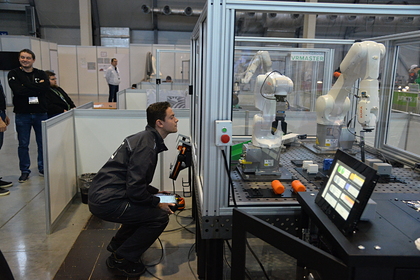Training today is more important than ever. Any company that wants to be competitive must have quality talent
An unforeseen effect of the pandemic was the massive migration to virtual platforms for daily activities such as work and education, which marked 2020 and 2021 as “the era of the great technological leap”. At the same time, this disruption has shown that technology is a pillar for the survival of companies and an essential factor for the continuous development of its collaborators.
If anything, we have learned the In recent months, reality can change from one day to the next and we have to be prepared. Today more than ever, employees must be aware that they will need to renew their professional skills to continue being an important piece for the company where they work, especially when it is expected that more and more processes will be automated.
This stage of digitization and health crisis is characterized by collaboration, innovation and autonomy, which requires the adoption of more disruptive work cultures, which make work dynamics faster and more efficient for everybody. In this scenario, soft skills such as communication, emotional intelligence, time management, creativity or leadership become more critical to the workforce.
Agree With the World Economic Forum, all sectors expect skills gaps and affirm that at least 50% of the workforce will require retraining by 2025, in order to develop the necessary skills to take on the new roles.
In Colombia, according to the World Bank, 65% of companies offer some type of training to their employees, with the aim of optimizing productivity and evaluating skills and processes. That is why a good assessment of knowledge needs leads to the determination of training objectives, as well as the choice of the best tactics and didactic models.
The development of Skills is an investment in the future, since they are essential in any job and key for those who want to continue growing professionally. This gave way to the EdTech ecosystem, the greatest educational disruption that integrates technology and innovation to learning.
In a remote and digital normality, a technological training ecosystem provides companies with access to a space with a wide variety of tools that help throughout the training process, including assessment of skills gaps, learning paths, and progress monitoring.
Also, mix synchronous and asynchronous educational models, with access to classes and live counseling, as well As with pre-produced support materials available at any time, it allows maximizing engagement between instructors, mentors, and students, culminating in a final personal project that validates learning and provides employers and employees with concrete feedback on ongoing development opportunities.
On the other hand, microlearning, cross-training and training by transversal skills have become one of the major training trends in companies. The first is the system that allows immediate learning and a complete adaptation to almost any training process, while the other two models focus on offering new skills to employees, regardless of their area of specialization that benefit them and the company. .
Note: This article have been indexed to our site. We do not claim legitimacy, ownership or copyright of any of the content above. To see the article at original source Click Here








:quality(85)//cloudfront-us-east-1.images.arcpublishing.com/infobae/OVSXRTIAINBOVC2HUOR7LJHZN4.jpg)



